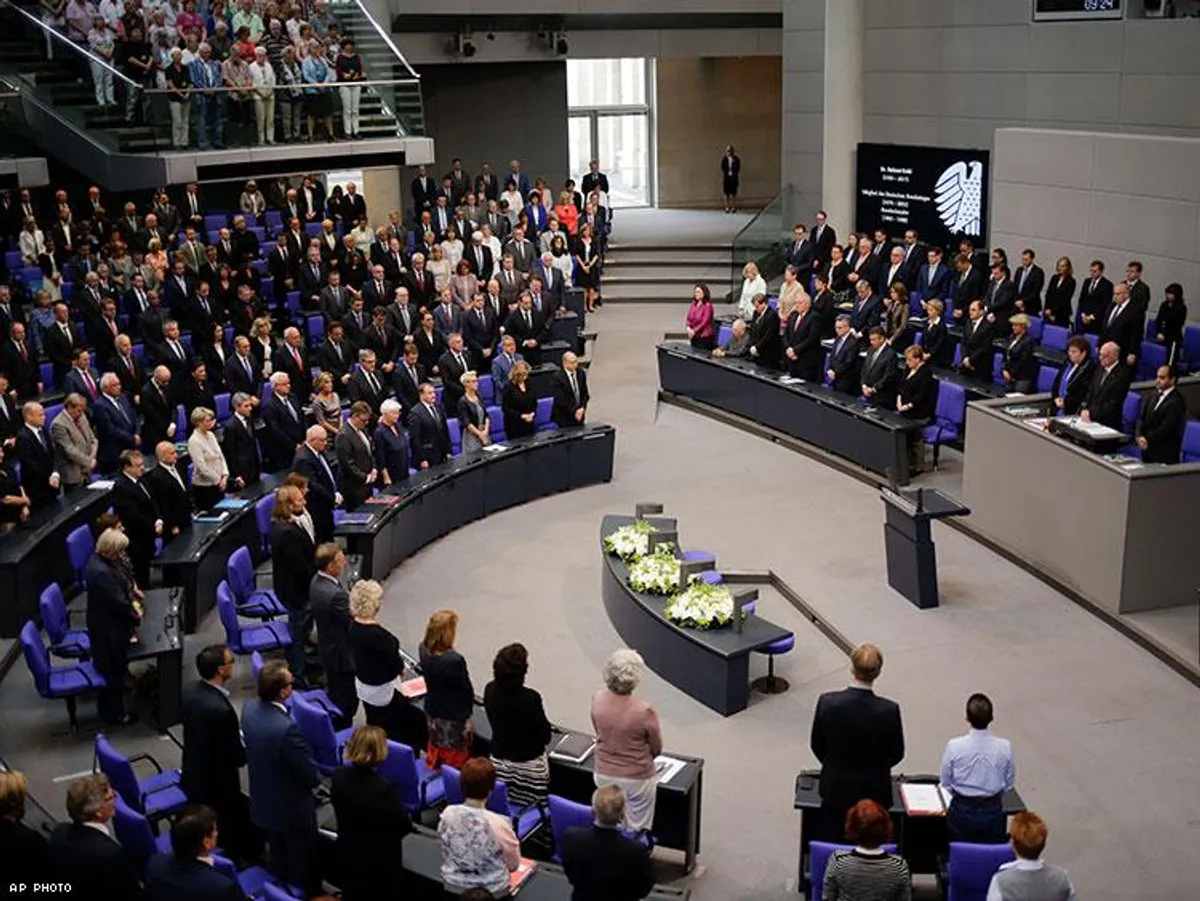World
Germany Finally Clears 50,000 Men Convicted for Being Gay

The German Parliament has voted to overturn post-World War II convictions and compensate the survivors.
Ariel Sobel
June 23 2017 10:56 AM EST
June 23 2017 10:56 AM EST
By continuing to use our site, you agree to our Private Policy and Terms of Use.

The German Parliament has voted to overturn post-World War II convictions and compensate the survivors.
Although Germany has done much to compensate for the crimes against humanity committed under its Nazi regime, it took the nation until this week to move toward clearing the record of 50,000 men convicted of the "crime" of homosexuality after World War II was over.
The men were convicted under Article 175, which was created in 1871 but not heavily enforced until the era of Adolf Hitler's Third Reich, which sent those convicted of homosexuality to concentration camps, where an unknown number died. Article 175 outlawed "sexual acts contrary to nature ... be it between people of the male gender or between people and animals." In 2002, the German Parliament reversed the Nazi-era convictions, but men had continued to be prosecuted under the law for decades after the fall of Hitler, and the 2002 measure did not address their situation.
Finally, on Thursday, the Bundestag, the lower house of Parliament, overwhelmingly passed legislation to clear and compensate these victims of Article 175, U.K. paper The Guardian reports. It still has to go through the upper house, the Bundesrat, but it is expected to pass there easily. An estimated 5,000 of the victims are still living.
Fritz Schmehling, now 74, was convicted under the law as a teenager, in 1957. "I don't want to die with a criminal record," he once told Agence France-Presse. Upon news of the measure's passing, he said to The Guardian that he wished his partner, who died in 2011, could have lived to see their names cleared. "I think he would have been as happy as when the Berlin Wall fell," Schmehling said.
Victims will receive a lump sum of EUR3,000 (about $3,360), along with about EUR1,500 (about $1,800) for each year they spent inprisoned.
"More than two decades after article 175 was finally wiped from the books, this stain on democratic Germany's legal history has been removed," the government's antidiscrimination office said in a statement.
However, LGBT Germans still lack full equality. Although Germany legalized registered partnerships for same-sex couples in 2001, it has not enacted marriage equality or awarded its LGBT citizens the ability to adopt chldren, unlike many European Union member states.